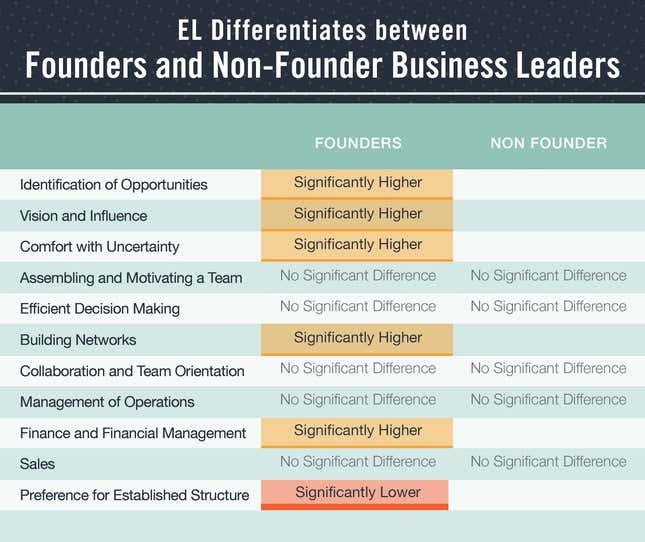Do you have what it takes to be a successful entrepreneur? Your answer to that question, if you take recent studies to be your guide, would primarily have to do with your personality. We tend to believe that certain psychological traits make individuals more fit for the challenge of starting and running a company than others who don’t fit a specific mold.
A new study out of Harvard Business School (HBS), however, suggests we may be incorrectly assessing the qualities of entrepreneurs. According to professor Lynda Applegate, faculty chair of the Owner/ President Management program, researchers have long had difficulty accurately isolating the “entrepreneurial temperament.” Part of the difficulty, she says, has been our insistence on defining entrepreneurial success through the lens of personality types. Instead, she argues, we should be looking at specific skills—qualities that don’t fall into one particular category but can help us differentiate organizational leaders from entrepreneurial leaders and one type of founder from another.
Applegate’s research team at HBS devised a test that overhauls the conventional process of defining the qualities of a successful entrepreneur. By sending out a pilot test to 1,300 HBS alumni, they asked both founders and non-founders to conduct self-assessments on specific skills and behaviors associated with their profession. Each individual had to rate their level of comfort and self-confidence on the basis of 11 factors such as “vision and influence” and “finance and financial management.”

By testing all HBS alumni including those who started companies as well as those who hold leadership positions within established firms, researchers could start to look at leadership trends in general and also break down differences among founders. The initial results point to the potential for building a rich typology of entrepreneurs differentiated not by personality, but by other factors such as the propensity to run a small business or start one company after another.
One of the most useful aspects of the study in fact distinguishes between one-time versus serial entrepreneurs. Researchers believe this may actually come down to how an entrepreneur derives pleasure in their work. Serial entrepreneurs seem to truly enjoy the process of taking a business from the realm of uncertainty to certainty, propelling them to take the leap multiple times. Other entrepreneurs may have less tolerance for such repetition.
You might also expect that all HBS graduates would be equally comfortable with things like “financial management” and “management of operations”—both integral aspects of an MBA education and the stewardship of any kind of business. But in fact, founders rated themselves much more comfortable than their non-founder counterparts on both of these metrics, a distinction that helps researchers formulate theories about how entrepreneurs diverge from other business leaders in general.
A second round of findings based on peer assessments of entrepreneurs is set to publish later this year and the researchers hope to extend this method beyond HBS alumni. The potential for this type of test is far-reaching. If professors can identify strengths and weaknesses in potentially high-performing entrepreneurs, they can help guide and mentor them into the business scenario that’s right for them. Similarly, the test can help leaders within companies harness some of the skills and mindsets that are integral to the success of founders. This method may shift the whole field’s perspective about what makes someone a successful entrepreneurial leader.
This article was produced on behalf of Harvard Business School Executive Education by Quartz creative services and not by the Quartz editorial staff.
